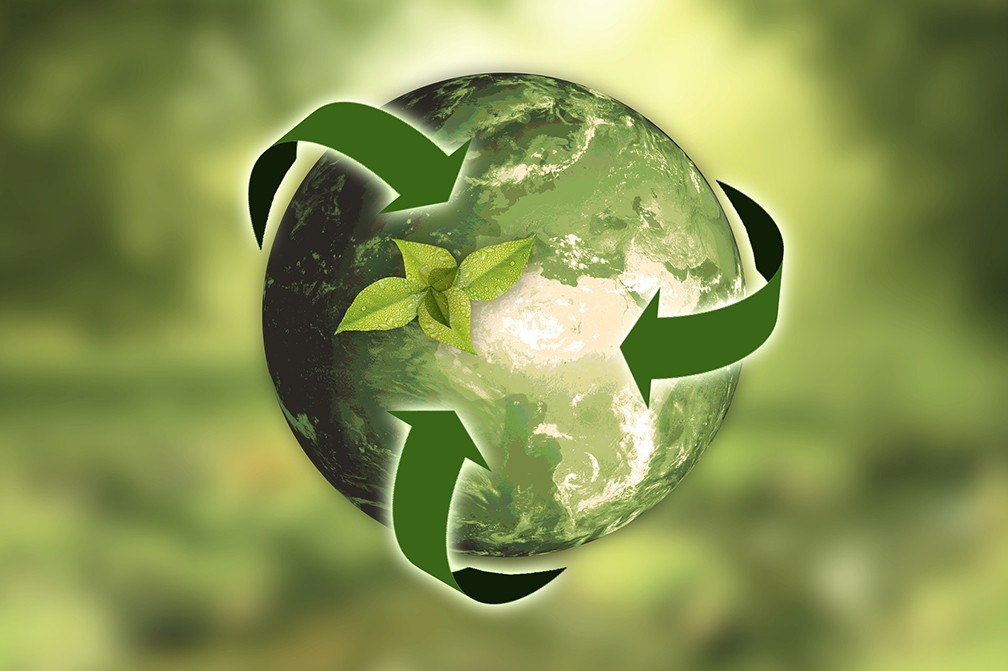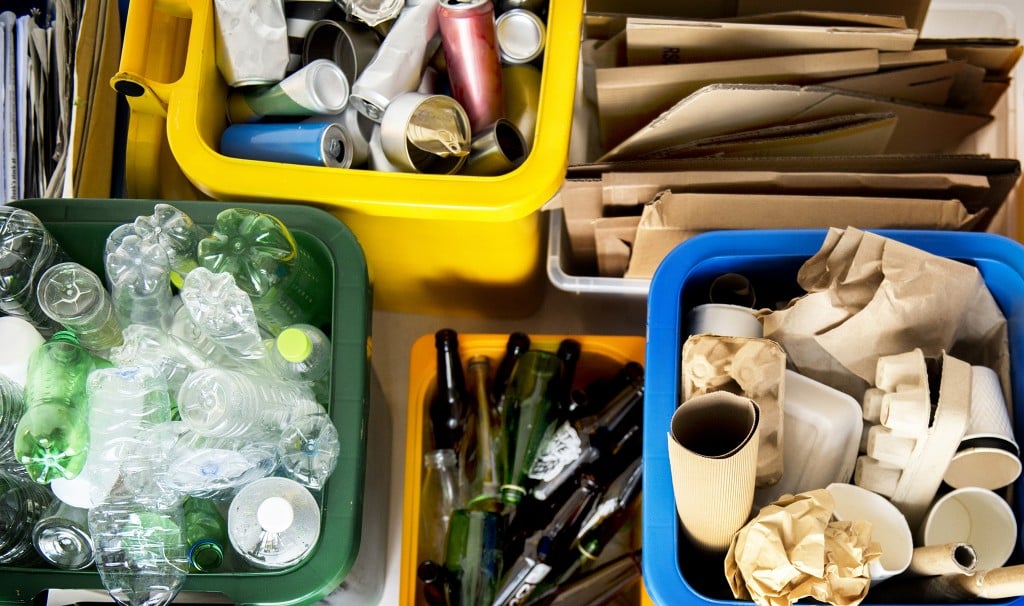BIR World Recycling Convention focused on robust commodity markets in a challenging global environment

The 145th Bureau of International Recycling (BIR) World Recycling Convention & Exhibition took place online this week from May 31st to June 2, providing a platform for the international recycling sector, top industry executives, as well as buyers and sellers from across the globe, to come together for three days of online business, expert-led sessions and worldwide networking.
During the opening address, BIR President Tom Bird said "Whereas 2019 was a year of relative stability, 2020 was the complete opposite. COVID-19 set challenges for our industry - and for society in general - which we had never previously encountered. As ever, the recycling industry demonstrated its renowned ability to adapt to ever-changing circumstances and to carry on with its environmentally and economically crucial work. BIR as an organization also succeeded in adapting remarkably quickly to the changes brought about by the pandemic, including the launch of online Conventions and finding new ways to communicate with our national association members."
BIR Annual Report
During this opening session, BIR released its 2020 Annual Report highlighting key recycling industry developments, data and expert insights from BIR's eight commodity divisions and committees, reflecting key achievements and concerns of the organization's cross-commodity.
"This Annual Report underlines the many difficulties that arose during 2020," said Bird. "On the other, it reflects the robustness of our industry and its many triumphs over adversity during a tumultuous year for us all." He said the 2020 Annual Report also confirms that BIR's membership has remained stable, uniting over 700 members in 70 countries.
BIR's annual report is available electronically in English on the BIR website.
The challenges of global recycling
Following the opening session, "The Challenge" was a BIR panel-based TV-format session focused on current global challenges for the recycling industry with respect to navigating regulations and protectionism, and specifically, the global shipping/container industry. See the full story.
Part of this session was focused on the challenges of current government legislation at all levels, and from many nations, which are proposing or initiating legislation that limits the way plastic is used, or discouraging its use. According to these opening sessions, policies being formulated at the United Nations and (UN) European Union level could make it difficult for manufacturers in some parts of the world to acquire the plastic scrap feedstock they need.
Also on the first day of the convention, the start of multiple sessions focused on women in the recycling industry, as well as a BIR International Environment Council (IEC) discussion which continued its focus on the current challenges for recyclers in the global economy. In this session, panelists looked closely at the proposed revision of EU shipment regulations, which according to Chairman Olivier François could pose a serious export threat. He said the European Commission is considering changes to EU waste shipment regulations that could prove to be of "tremendous importance" and potentially highly damaging to export flows of many recycling materials, including ferrous and non-ferrous metals, recovered paper and plastics.
In addition, and of key concern to the global recycling sector, BIR Trade & Environment Director Ross Bartley explained that the world recycling organization would be surveying relevant companies later this year in order to assess the cost burden of installing and running systems to detect radioactive metals inadvertently included in consignments arriving at scrap yards. There had to be an appreciation, he said, that the recycling industry was "doing a good job for society" by taking on costs in respect of radioactive sources lost or misplaced mostly by other industries.
Circular economy
Starting on the 2nd day of BIR's convention, through June 2nd, sessions continued to feature a long list of the world's circular economy leaders, corporate and commodity experts. Multiple sessions touched on the new European Green Deal, which "promises" to disrupt existing business models for electronics and all produced materials by creating an extended circular economy built around repair, reuse and remanufacturing. (The overarching aim of the European Green Deal is for the EU to become the world's first "climate-neutral bloc" by 2050.)
Robust recycled commodities markets
Commodities discussions focused on the current state of most major recycled materials markets, including paper, plastics, textiles, e-waste, ferrous, non-ferrous, and rubber (notably, glass was conspicuously absent as a commodity topic from this year's agenda). Overall, the commodity-based discussion focused on our historically high levels for almost all commodities, balanced against the severe operational and market difficulties encountered during a COVID-dominated 2020, and new challenges in 2021, including very high global freight rates, and geopolitical-based trading uncertainties. For plastics, for example, this is particularly significant considering the currently restricted climate for global trade in plastics due to new Basel Convention amendments in January.
E-waste recycling
This year's E-Scrap Committee session was another highlight. Titled Challenges and opportunities for recyclers in "the interesting times ahead of us" it focused on electronics recycling as "a very complex environment" in which there is "an absolute need for a dramatic change," according to Helmut Kolba of Germany-based Remondis Electrorecycling GmbH, BIR's E-Scrap Committee Chairman.
Marc Affüpper, COO of Germany-based TSR Recycling GmbH & Co. KG, also acknowledged that there were "interesting times ahead of us." He envisaged closer co-operation over the certification of "green raw materials" as well as "the need to grow efforts to close loops for the entire material spectrum." He said recycling processes would need to become "more sophisticated" given that, for example, the plastics mix had increased its average share of small domestic appliances from under 20% in 2013 to nearer 30% in 2020; over the same seven-year period, average metal content had dropped from approaching 45% to around 30%.
On the issue of legislation governing electronics recycling, Mr Affüpper called for "more global synchronization to get closer to a level playing field" as well as the stricter enforcement of existing regulations. He also identified the need for a holistic view of changing waste streams and for an understanding of shifting consumer habits, including the fact that electronics were being discarded significantly more quickly than even a decade ago.
Cosmic sustainability
The keynote address on June 1st, delivered by Lucy Hawking - journalist, novelist, educator and daughter of world-renowned theoretical physicist Stephen Hawking, was titled "Cosmic sustainability: the Universe is a Recycler!" She spoke about the nature of recycling as "fundamental to preserving our existence on Earth." After having explained that everything on Earth was the product of recycled dust from exploding stars, she quoted the following words from Dr John Hogan, an environmental scientist in the bioengineering branch of NASA's Ames Research Center in California: "It's become very clear to me over many years now that we really are on a space ship - it's not metaphor - and that recycling is the way this system works."
She said her father, who died in 2018, had been an early advocate of the need to take climate change seriously. "He spoke about it and wrote about it way before it really entered the public consciousness," said Hawking. "He saw the science and he saw the evidence, and he realized where it was going."
With respect to the mounting concerns over marine littering, Hawking spoke of the "depressing" array of debris circling in Low and Geostationary Earth Orbit, and said, more encouragingly, plans are under discussion to capture some of this debris and repurpose it for future space missions.
She concluded, "It would certainly take recycling into a whole new dimension."
At the closing session, today, BIR president Tom Bird thanked attendees and said he hoped to see many at their October convention (BIR has two World Recycling Conventions yearly) set for Brussels, October 25th -26th, and currently scheduled as an in-person event. RPN



